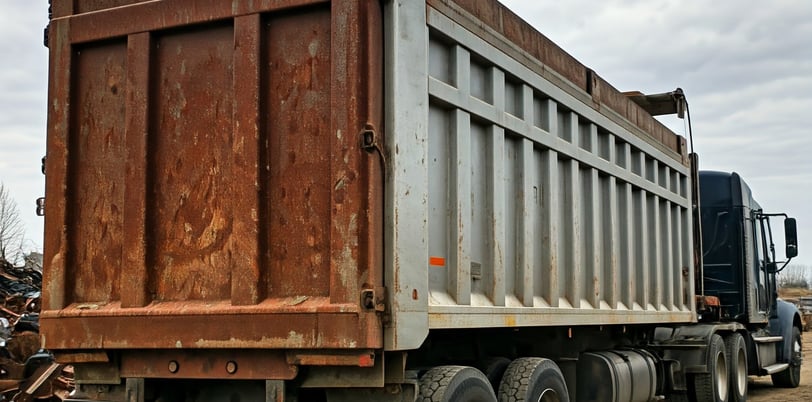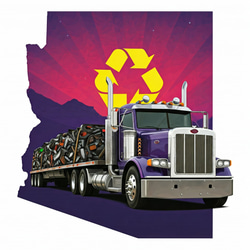The Essential Guide to Scrap Metal Trucking and Transportation
In the scrap metal industry, trucking plays a crucial role in ensuring efficient transportation of recyclable materials from collection points to processing facilities. This blog post explores the various aspects of scrap metal trucking, highlighting the importance of having a reliable fleet and skilled drivers who understand the nuances of handling different types of scrap. From ferrous to non-ferrous materials, the diverse nature of scrap metal requires specialized knowledge and equipment for safe transport. We’ll discuss the best practices for loading and securing scrap metals to minimize damage and ensure compliance with regulations. Moreover, we’ll delve into the environmental benefits of recycling scrap metal and how trucking companies can streamline their operations to enhance sustainability. Join us as we explore the intersection of logistics, recycling, and innovation in the ever-evolving world of scrap metal trucking.


Understanding Scrap Metal Trucking
Scrap metal trucking and transportation play a vital role in the recycling industry. As global awareness about sustainability increases, the demand for efficient and reliable hauling services has surged. Scrap metal, which includes ferrous and non-ferrous materials, needs to be transported from collection points to recycling facilities. The importance of having a trusted trucking service cannot be overstated, as it ensures that materials are handled properly and delivered in a timely manner.
Key Factors in Scrap Metal Transportation
When it comes to scrap metal trucking, several key factors come into play. First and foremost, the type of vehicle used for transportation must be suitable for the specific types of materials being transported. For instance, flatbed trucks are popular due to their versatility and ability to accommodate larger loads. Additionally, having trained personnel who understand the intricacies of handling scrap materials is crucial for maintaining safety and efficiency throughout the transportation process.
Another essential factor is route optimization. Transporting scrap metal often involves navigating a network of local roads, highways, and sometimes, restricted areas. An effective trucking service will employ route-planning software to minimize travel time and fuel consumption, thus lowering overall operational costs while reducing the environmental impact.
Benefits of Professional Scrap Metal Trucking Services
Engaging a professional scrap metal transportation service offers numerous benefits. Firstly, these companies are well-versed in the regulations and standards governing the transportation of scrap materials. Compliance with local and national laws mitigates the risk of delays and potential fines, ensuring a seamless experience. Moreover, many trucking companies offer additional services such as sorting and processing, which can save time and resources for businesses in the scrap industry.
Furthermore, investing in experienced scrap metal trucking solutions can lead to enhanced reliability. Businesses rely heavily on timely deliveries to maintain operations. By partnering with a reputable trucking service, companies can be assured that their scrap materials will be picked up and delivered as per schedule, boosting operational efficiency.
In conclusion, scrap metal trucking and transportation are integral components of the recycling sector. By understanding the dynamics of providing these services, businesses can optimize their operations while contributing to a more sustainable future. With the right trucking partner, the complexities of scrap metal logistics become manageable, ensuring that valuable resources are recycled promptly and effectively.
